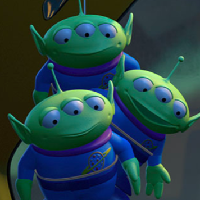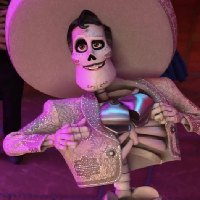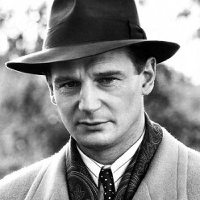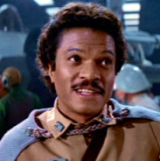Buzz Lightyear type de personnalité MBTI
Personnalité
"Quel type de personnalité est Buzz Lightyear? Buzz Lightyear est un type de personnalité ESTP dans MBTI, 3w2 - so/sx - 397 dans Enneagram, SCOAN dans Big 5, LSE dans Socionics."
Buzz is in my opinion a very hard character to type in terms of both cognitive functions and enneagram wise, but I am pretty confident of my vote. Dominant Se and Inferior Ni: Buzz' perception is completely direct, immediate and literal. He perceives information as how it simply is, no revising or double checking, or shocking his perception against objective reality (Si). He perceives things through abusing reality and utilizing direct information to rationalize things. In Toy Story 4 for example, when Woody tries to give him advice to listen to his inner voice, he literally interprets it as "listening to the voice inside of him", the literal voice that comes out when he presses the buttons on his chest. His perception is so immediate that he can react accordingly almost instantly, springing into action as soon as he senses danger. Whenever an obstacle comes, he doesn't waste any time springing into action. Unlike Woody, he also doesn't seem interested in what's eternal, what to perceive that will last, he's much more aware of momentary importance. "Our mission with Andy was accomplished, Woody. And what matters now is that we need to stick together." His Ni is repressed, as he doesn't seem to perceive the unconscious in a personal manner. Doesn't usually have ideals that he adheres to or the perception around an absolute idea. Back to the inner voice example, he doesn't understand that listening to his inner voice is an expression to do what you think is right, and instead bizarrely interprets things literally and believes the inner voice he should listen to is something literal. Auxiliar Ti and Tertiary Fe: "Woody, wait! We need to see what's best for everyone!" "This is tempting...but I can't accept it! We're a family! We'll stick together!" His judgments are not contextual, they don't come from him in a way. They are a production of the apersonal judgment of Fe's external value attribution and Ti's deductive reasoning and internal rationale. This gets clear by the judgments he makes in Toy Story 1 once he gets out of his box, he favors deduction as his primary form of judgment. "Buzz Lightyear registering stellar data 4072. I've crash-landed in a strange planet. The impact probably woke me up from hypersleep." *Bounces feet on the bed* "The terrain looks a bit unstable. There are no readings that the air is breathable and there seems to be no sign of intelligent life forms around here." "I need to fix the propulsion turbines. Do you still use fossil fuel or did you already discover crystal fusion?" His preferred method of rationalizing is purely focused on impartial understanding, and not on external practicality. Ti's use of facts is mainly focused on the logical consistency and the principle of truth. Using internal deduction as manners of understanding and explanation for his doubts. All knowledge to him is resourceful. He doesn't categorize facts in terms of personal relevance, but in turn, absorbs more and more factual information of things in order to expand his universal understading of his current context. Not to mention that he prioritizes the judgment of truth by itself and ultimately shuts off when everything he believed to make sense, suddenly didn't anymore. He recognizes that he learned a painful truth from the universe, and had to clear his eyes a bit more. His Fe is also VERY clear. Not as prominent as Woody's to be dominant, sure, but still very much there. Buzz doesn't shock internal values and judgments of value into the world, his attribution of value judgment is external and impartial. Some instances of him showing it: -His arc in Toy Story 4 about listening to his inner voice again. Instead of interpreting it in a personalized way of "I'm going to put value into what I as a person deem as valuable", but instead using it as a sort of external guidance. The voice tells him what to do, like an external subject or person telling him what he should value at that moment in time. -His initial presentation in Toy Story 1 was that of aa flexible networker, in the sense that his values are not personal and he adapts them to the external context he is inserted. Presenting himself in an amiable and adaptable way to the toys, and internalizing to his character the values and costumes of what he thinks is a different planet with different residents. His values are very malleable externally. It's also probably why despite thinking he's a space ranger, he freezes when a human comes like the rest of them. He saw them doing it and thought this would bring a smooth value transition to blend in. -In Toy Story 3, he is constantly in the judgment of solutions that cater to everyone as a family. His priority is that they stick together first and foremost. Even refusing to accept an opportunity of becoming buddies with Sunnyside's head honchos because he wants to stay together with them. He's competing with Denji and Kenny in terms of being the most lovable and innocent ESTP in fiction lmao
Biographie
Buzz Lightyear is the deuteragonist of the Disney•Pixar Toy Story franchise. He is a heroic spaceman action figure originally belonging to Andy Davis. Depicted as a Space Ranger working under the authority of the Star Command, Buzz was created during a time where astronauts were especially popular amongst children. Because of this, his arrival in the original Toy Story film created conflict with Andy's favorite toy, Sheriff Woody, though this rivalry would eventually blossom into a lifelong friendship. He is also the archenemy of the Evil Emperor Zurg. The fictional Buzz Lightyear and his adventures would be explored in two spin-off projects: The 2000-2001 animated series Buzz Lightyear of Star Command and the 2022 film Lightyear.























